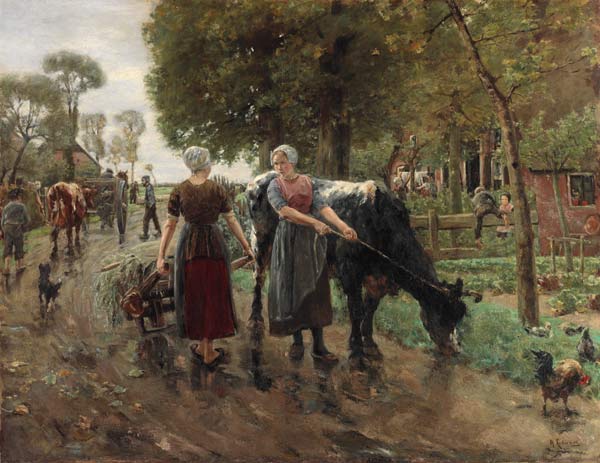|
You
can also view the message online
|
|||||||||||
 Châtenay-Malabry (FR - 92290), July 13, 2020 EFITA newsletter / 940 - European Federation for Information Technology in Agriculture, Food and the Environment The informatique-agricole.org site now offers you the possibility of subscribing the RSS feeds of its two newsletters See RSS feeds to implement to ensure that you continue to receive this newsletter To unsubscribe this newsletter, please contact me directely: guy.waksman(a)laposte.net if this link Unsubscribe does not work. Please note that I changed the presentation of the links that are embedded in the name of the web service. 
To correspond with me (GW), please use this address: guy.waksman(a)laposte.net To subscribe the efita newsletter (please ask your friends and colleagues to test this link) Efita Newsletters subscription Weekly newsletters about ICT in Agriculture in English and French Both newsletters have around 14000 subscribers. >>> Last weekly EFITA Newsletters in English (created in 1999) Efita Newsletters >>> Last weekly AFIA Newsletters in French (created 20 years ago in 1997) Afia Newsletters >>> Statistics for the last efita newsletter >>> Last issue of the afia newsletter >>> Last available satistics for the afia newsletter
World Agri-Tech South America Summit July 30, virtually See worldagritechsaopaulo.com How we saw the future yesterday?
Startup Spotlight: How Solectrac wants to drive on-farm sustainability with its electric tractors A few decades ago, the idea of self-driving tractors may have sounded like science fiction. Today, tractors are taking on new futuristic shapes and forms. While a number of startups are fast at work developing autonomous tractors, others are tackling sustainability-related aspects of these fuel-hungry machines. Fossil fuels account for the largest source of greenhouse gas emissions related to human activities, according to the US Environmental Protection Agency. “We never considered ourselves a start-up when we began this journey years ago. We were solution-minded dreamers on a mission to produce our vision: a zero-emission electric tractor that would solve immediate problems for the tractor owner, like noise and exhaust, and help reduce the inputs of climate change – such as the CO2 emissions caused by diesel tractors,” a representative of electric tractor start-up Solectrac told AFN. See agfundernews.com
Focusing on drought This month we focus on drought. How can precision farming technology help farmers overcome this growing challenge? Read more articles about water management See futurefarming.com Aeroponics: Growing in the mist What is the current potential of aeroponics technology to grow food or cannabis crops economically? Read more See futurefarming.com
Pivot Irrigation: Smart controller for center pivot irrigation systems The Hydro-Rain B-hyve controller allows farmers to remotely control and monitor center pivot irrigation systems. Read more See futurefarming.com Drip Irrigation: N-Drip provides alternative to flood irrigation N-Drip combines flood irrigation with the high yields and precision of conventional drip systems. See futurefarming.com Good old days (?????): Femme avec des chèvres de Max Liebermann Syngenta to commit $2bn to sustainable ag by 2025 & two tech breakthroughs each year Major seed and ag chemicals provider Syngenta is adding another initiative to the ongoing list of corporate sustainability commitments sweeping big food and big agribusiness after the results of a farmer survey revealed deep concerns about the impact of climate change. The announcement also happens to come on the heels of 2020’s Pollinator Week. Through The Good Growth Plan, Syngenta is pledging to invest $2 billion into sustainable agriculture by 2025 and to deliver two new technological breakthroughs to market each year, according to a company press release. The plan is a refresh from the original Good Growth Plan launched in 2013, which included targets like bringing over 14 million hectares of farmland back from the brink of degradation and enhancing biodiversity on over 8 million hectares. Syngenta claims that it has met or exceeded all of the targets from the 2013 Good Growth Plan. See agfundernews.com British workers try their hand at an unfamilar job: Berry picking Over all, 70,000 to 90,000 seasonal workers are needed to pick all the fruit and vegetables that grow in the country... See agfundernews.com Last issue of the newsletter “2025: End hunger and undernutrition” See cgiar Good old days (?????): Récolte de pommes de terre à Barbizon par Max Liebermann COVID-19: resilience innovations in food supply chains by Thomas Reardon and Johan Swinnen Food supply disruptions in developing countries during the COVID-19 pandemic have been varied and often severe, especially in labor-intensive segments of supply chains. Tom Reardon of Michigan State University and IFPRI’s Jo Swinnen summarize early experiences in both international and domestic supply chains across various types of firms and commodities. They review a range of innovations developed to keep supply chains running, many implemented at a surprisingly rapid pace—and make recommendations on to facilitate continued innovation to speed the recovery and ensure better food supplies post-pandemic.—John McDermott, series co-editor and Director, CGIAR Research Program on Agriculture for Nutrition and Health (A4NH). See ifpri.org Covid-19: Level of asymptomatic spread “If we had known about the level of asymptomatic spread, I think we would have all looked at this differently." Knowing the levels of asymptomatic cases, which Birx said were initially estimated to be 15 percent of cases but now are thought to be as high as 40 percent, would have been especially helpful in crafting responses, she noted: “If countries had known that from the beginning there would have been a very different response to this.” Deborah BIRX See atlanticcouncil.org Covid-19: Face-off over face-masks: Europe’s latest north-south split Southerners cover up in public; northerners don’t. In the West, some people choose not to wear masks because they are uncomfortable, awkward, or even, in America, too much of a political statement (supporters of President Donald Trump are less likely to wear them than Democrats). With a vaccine still months or even years away, these hardly seem adequate reasons to reject a simple, cheap and at least partially effective way of stemming transmission of the virus. https://www.economist.com/img/b/1280/752/90/sites/default/files/20200711_WOC398.png See economist.com
Tackling racism. The new ideology of race. And what is wrong with it Our cover this week argues that a set of illiberal ideas about how to tackle American racism will only hinder progress. Leaders like Frederick Douglass and Martin Luther King used vigorous protest and relentless argument to push society towards their vision of equality of opportunity and equality before the law. Most Americans still hew to that classical liberal ideal, as do many of those who marched with justified anger over the killing of George Floyd by a white policeman in Minneapolis. But a dangerous rival approach has emerged from American universities. It rejects the liberal notion of progress. It defines everyone by their race, and every action as racist or anti-racist. It is not yet dominant, but it is dynamic and it is spreading out of the academy into newsrooms and boardrooms. If it supplants liberal values, then intimidation will chill open debate and sow division to the disadvantage of all, black and white. …/… The new ideology of race is not just wrong and dangerous, it is also unnecessary. Liberalism can offer a fairer, more promising route to reform. It asserts the dignity of the individual and the legal, civil and moral equality of all people, whatever the colour of their skin. It believes in progress through argument and debate, in which reason and empathy lift truthful ideas and marginalise bigotry and falsehood. Liberalism thrives on a marketplace of ideas, so diversity has a vital role. New voices and experiences enrich the debate. Liberalism does not fight power with power, which risks replacing one abusive regime with another. Instead it uses facts and evidence, tested in debate, to help the weak take on the strong. Liberalism is all about progress, including about putting right its mistakes—and there have been many, especially over race, including finding reasons to accommodate imperialism and slavery. That is one reason why, in the 250 years in which it has been influential, humanity has seen unprecedented material, scientific and political gains, as well as a vast extension of social and political rights. Progress on racial inequities has been part of this—as in South Africa, where liberals joined forces with the trade unions and communists to sink apartheid. …/… See economist.com The Real Reason Apple Made the iPhone SE So Cheap by Owen Williams Apple is all about services now... ...But Apple’s focus on services is in part a reaction to people waiting longer to upgrade their phones. And so far, it seems to be working: Last year, the iPhone made up less than half of the company’s revenue for the first time in years, and that was before Apple’s TV, games, and news subscription services were even available. With an estimated 1.5 billion iPhone users today, Apple has the power to reach more eyeballs with a single software update or push notification than any other company. The iPhone SE, at such a low price, is the perfect lure: Compared to the iPhone XS, it’s cheap enough to tempt anyone who’s looking to replace their phone and locks in years of potential cash for Apple, even if you buy just a single service or accessory after purchasing the phone. But the bet is simple: You’re all but certain to spend more money, and Apple wins regardless of what that is. See medium.com Good old days (?????): Holländische Dorfstraße von Max Liebermann
Covid jokes My favourite part of 2020 so far is how ordering takeout’s most nights of the week is now considered supporting local businesses and not being a lazy ass who just doesn’t want to cook. Why doesn’t Covid-19 hurt children? Because when you’re 19 it’s child abuse. Masks are the new bra... They aren't comfortable, you only wear them in public, people will notice when you DON'T wear one, and you can now get them in every colour pattern and style. The distribution of this efita newsletter is sponsored by vitisphere.com Please, contribute to the content of your efita newsletter, and advertise your events, new publications, new products and new project in this newsletter. Without your support, it will not survive! Contact: Guy WAKSMAN E-mail: guy.waksman(a)laposte.net To read this newsletter on our web site See Afia The archives of this newsletter See Afia About the EFITA mailing list You can use the efita moderated list (> 15000 subscribers) to announce any event / product / web site / joke (!) related to IT in agriculture, environment, food industry and rural areas. If you want to subscribe a friend, please fill in his form. If you do not wish to receive our messages, please fill in the following form... |









